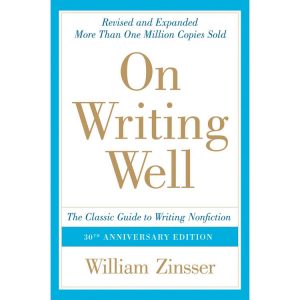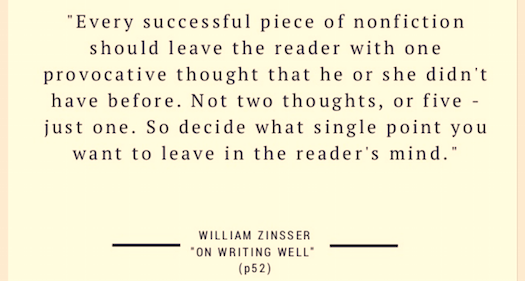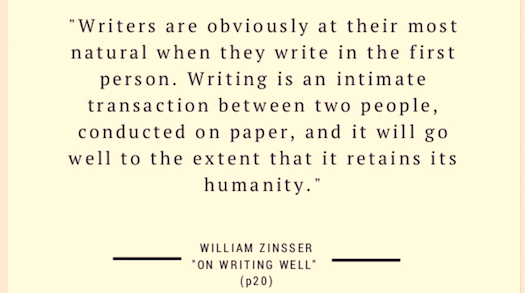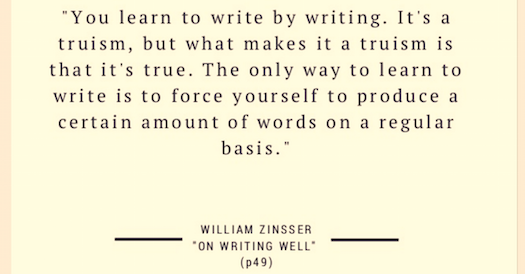Think you’re not a writer? Guess again. Everyone is a writer. Even if your writing consists mostly of texts and emails, you can make that writing more engaging and improve the chances that it will be read and understood.
That’s why I’m reading On Writing Well: The Classic Guide to Writing Nonfiction, by William Zinsser. The author, who lived into his 90s, treated his readers to seven editions of this classic, which should be on the bookshelf of every writer.
Lest you think it is only a technical book, it is also, in its own way, humorous. As I read it, I regretted never having a chance to meet William Zinsser, who seemed to be a curmudgeon about writing, but quite an amusing one at that.
Take, for example, this excerpt from the book about exclamation points:
“Don’t use it unless you must to achieve a certain effect. It has a gushy aura, the breathless excitement of a debutante commenting on an event that was exciting only to her: ‘Daddy says I must have had too much champagne! But honestly, I could have danced all night!’ (p. 71)
Or, Zinsser’s admonition about using trendy words:
“The only trouble with accepting words that entered the language overnight is that they often leave just as abruptly. The ‘happenings’ of the late 1960s no longer happen, ‘out of sight’ is out of sight, and even ‘awesome’ has begun to chill out. The writer who cares about usage must always know the quick from the dead.” (p. 42)
The book is organized into four parts: Principles, Methods, Forms, and Attitudes. Thus, you can choose to read the entire book from beginning to end, or be more selective. Personally, I found Parts 1 (Principles) and 2 (Methods) to be full of insights valuable to every writer.
Six essential questions for every writer
 While reading part 2, I came across Zinsser’s essential six questions that every writer should consider before beginning to write (pp. 51-52):
While reading part 2, I came across Zinsser’s essential six questions that every writer should consider before beginning to write (pp. 51-52):
► “In what capacity am I going to address the reader? (Reporter? Provider of information? Average man or woman?)
► “What pronoun and tense am I going to use?
► “What style? (Impersonal reportorial? Personal but formal? Personal and casual?)
► “What attitude am I going to take toward to material? (Involved? Detached? Judgmental? Ironic? Amused?)
► How much do I want to cover?
► What one point do I want to make?
One of my greatest takeaways is Zinsser’s view that “rewriting is the essence of writing well” (p. 83). As a writer, it is easy to want to quickly jot something down and be done with it. Unfortunately, that rarely produces anything worth reading. Allowing “soak time,” reading what you’ve written aloud, and ensuring that you’ve addressed all six questions above, are some of the techniques recommended by Zinsser. (Read more tips from Zinsser here.)
So, if you’re interested in improving your writing, Zinsser’s On Writing Well is for you. It may make you a slower writer, but it’s guaranteed to make you a more cautious, conscientious, and competent one.
Slides credit: 20 Inspiring Quotes from William Zinsser





0 Comments on "How to Make Your Writing More Engaging and Compelling"